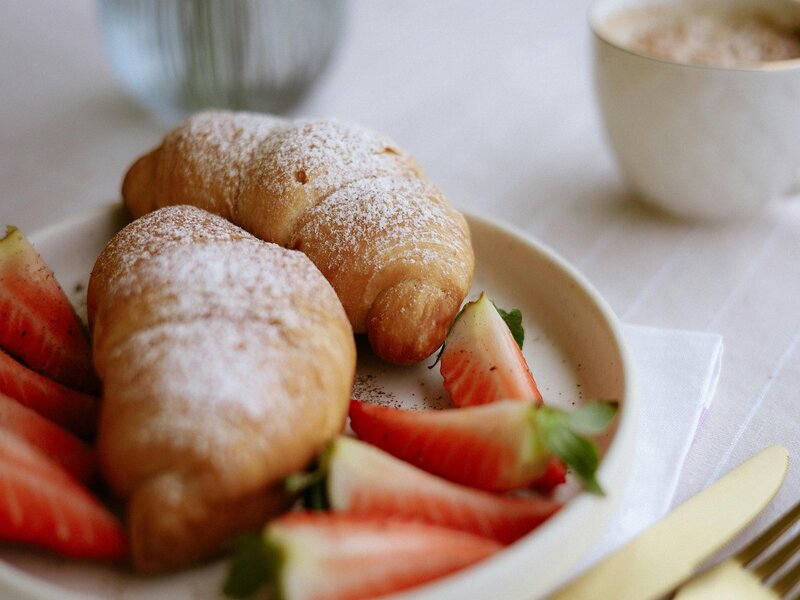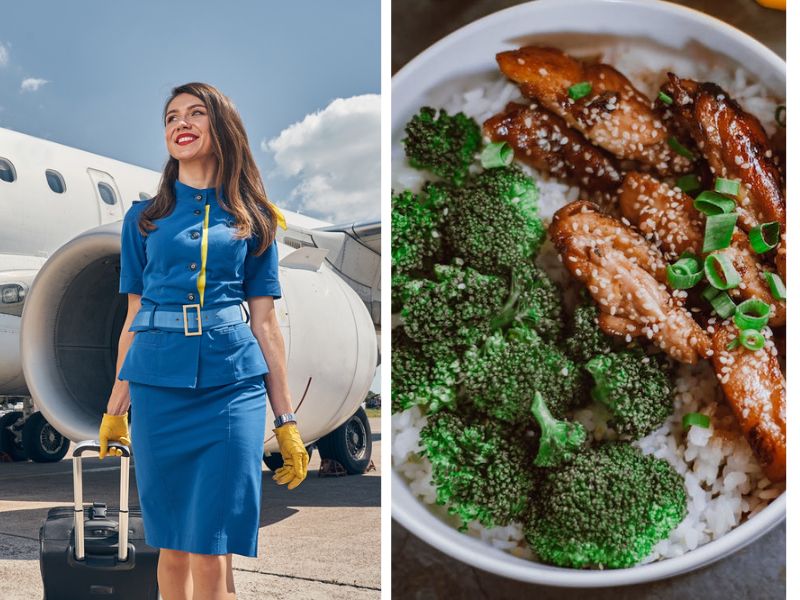Airline employees play a crucial role in ensuring passengers’ safe and pleasant travel experience. Pilots’ and flight attendants’ well-being during flights is essential for maintaining efficient operations. One aspect that often goes unnoticed is carefully considering their food and drink choices while in the air. The unique environment of an airplane can impact their preferences, leading them to avoid particular food and drink items for various reasons. In this article, we explore the everyday things airline employees tend to avoid during flights.

Image Credit: Pexels/Nati
Strong-Smelling Foods
Airplane cabins are confined spaces, and strong-smelling foods can quickly permeate the air, causing discomfort to passengers and crew alike. Airline employees often avoid foods like garlic, onions, and certain spices that can leave a lingering odor. Instead, they opt for milder options to maintain a pleasant environment onboard.
Carbonated Beverages
Carbonated drinks can lead to bloating and discomfort due to changes in cabin pressure. For this reason, airline employees typically refrain from consuming soda, sparkling water, or other fizzy beverages during flights. Still, water or non-carbonated alternatives are favored to stay hydrated without discomfort.
Dairy Products
Dairy products are known to be potential culprits of digestive issues, especially in pressurized environments. Flight crews may avoid milk, cheese, and creamy desserts to prevent gastrointestinal discomfort. Instead, they opt for lactose-free alternatives or snacks with a lower likelihood of causing digestive disturbances.

Image Credit: Pexels/Xeniya Kovaleva
Caffeinated And Alcoholic Beverages
While a cup of coffee or a glass of wine can be tempting during long flights, airline employees often limit their consumption of caffeinated and alcoholic beverages. These substances can lead to dehydration, a common concern in the cabin’s dry air. Moderation is vital to ensure they remain alert and attentive throughout the journey.
Messy Or Difficult-To-Eat Foods
In-flight turbulence is common, and airline employees understand the importance of choosing easy foods to eat without making a mess. Avoiding items that require elaborate preparation or have a high risk of spills is a priority to maintain professionalism and avoid potential hazards.
